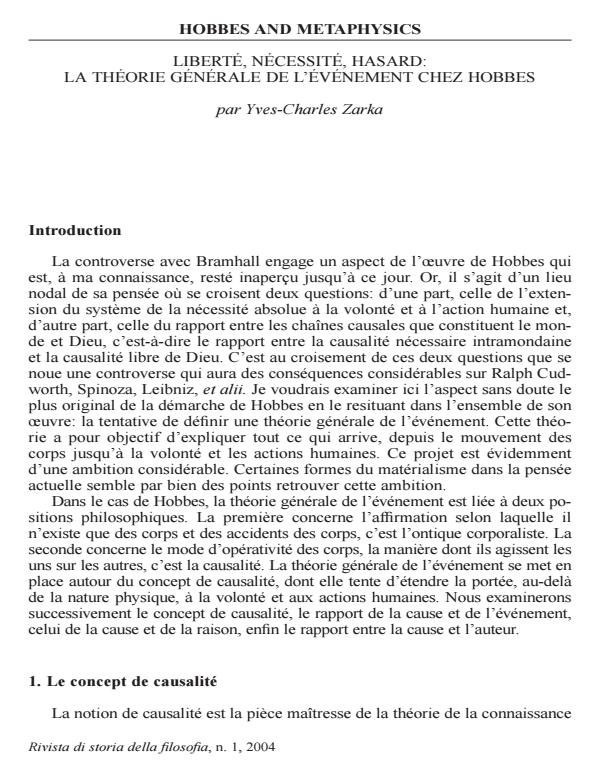Libertè, nécessité, hasard: la théorie générale de l'événement chez Hobbes
Journal title RIVISTA DI STORIA DELLA FILOSOFIA
Author/s Yves-Charles Zarka
Publishing Year 2004 Issue 2004/1
Language Italian Pages 13 P. File size 54 KB
DOI
DOI is like a bar code for intellectual property: to have more infomation
click here
Below, you can see the article first page
If you want to buy this article in PDF format, you can do it, following the instructions to buy download credits

FrancoAngeli is member of Publishers International Linking Association, Inc (PILA), a not-for-profit association which run the CrossRef service enabling links to and from online scholarly content.
Yves Charles Zarka seeks to show that Hobbes conceives of causes as events and that the progressive constitution of his theory of causality, from the Short Tract up to De corpore, introduces all elements required of a theory of event. Such a theory raises special problems as to the nature of rationality, theological foundations of a system of events and the status of politics in a physical universe governed by necessity. Some of those special problems include the well-known objections raised by Cudworth, Bramhall and Leibniz. Zarka stresses in particular the importance of the debate between Hobbes and Bramhall on liberty, necessity and chance in the formulation of those problems. One thesis of this paper is that such a theory of event can explain why Hobbes’s materialism can be changed, in his political thought, into its opposite.
Yves-Charles Zarka, Libertè, nécessité, hasard: la théorie générale de l'événement chez Hobbes in "RIVISTA DI STORIA DELLA FILOSOFIA" 1/2004, pp , DOI: